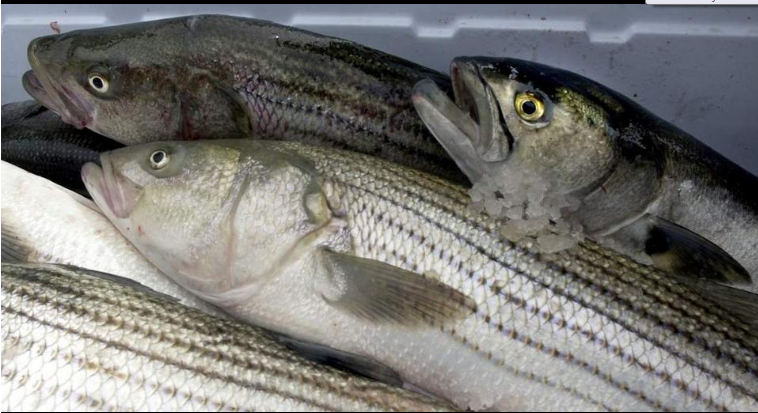BOSTON — Poachers will face stiffer penalties starting later this year under new laws aimed at cracking down on illegal fishing.
Under an environmental bond bill that passed last month, noncriminal fishing fines that were established about 25 years ago will be doubled. The fine for poaching a striped bass, for example, will increase from $50 to $100.
Noncriminal fines will be either $100, $200 or $400, with the latter reserved for the most egregious violations, said Jared Silva of the state Division of Marine Fisheries.
Environmental police officers will also be able to hand out a supplementary $10-per-fish fine on top of the noncriminal fines, a new provision.
Fishermen and other stakeholders had told state officials that the current fines weren’t enough of a deterrent, especially at the Cape Cod Canal.
“There’s always been complaints at public hearings and public meetings,” Silva said. Many people felt that poachers would pay the fines and then continue to poach, accepting the penalties as “the cost of doing business,” he said.
The new bill, which was largely concerned with addressing climate change, also streamlines or eliminates obsolete fishing violations, some that go back to the 1910s and ’20s.
“We looked at what other states were doing and we were behind the times,” Silva said.
New baseline fines for criminal violations also will be instituted.
The new fines will range from $400 to $10,000; violations can also carry up to 2½-year prison terms.
Mirroring a Department of Environmental Protection statute, the Attorney General’s Office will be allowed to sue for up to $10,000 in a civil suit.
“We’re hoping that there’s greater deterrence moving forward,” Silva said. “It’s been a successful tool for us.”
The fines are the latest in a state crackdown on illegal fishing that Silva said dates back three years. In mid-August, during a fish blitz at the Cape Cod Canal, Environmental Police handed out court summonses and more than 50 citations in one week.
“It just continues to go on and on with no end in sight,” said state Environmental Police Major Patrick Moran.
Moran said he welcomes the changes.
“I think what we accomplished should serve as a deterrent to violators,” he wrote in an email. “Prior fines and penalties were looked at as the cost of doing business. We now have the leverage of fining individuals who violate on a per-fish basis. Considering some of the overages we have had, that can add up fast and become quite costly.”
Environmental Police worked with the Division of Marine Fisheries for about two years to bring fines “out of the stone age and into the 21st century,” Moran wrote.
“It’s a sad thing when a small percentage of people tarnish the efforts and progress being made by honest recreational and commercial fishers,” he wrote. “I don’t include that small percentage with other fishermen, because they are poachers, plain and simple, that ruin it for everyone else.”



 Advertising
Advertising